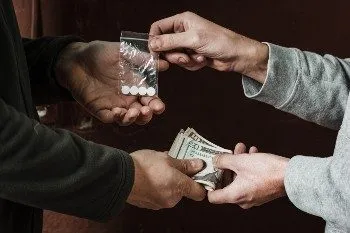
If you’ve been arrested on a domestic violence charge, assault, disorderly conduct, or drug possession, you should speak to an experiencedMassachusetts criminal defense attorney as soon as possible.
You can contact us online or call our office directl to schedule your free consultation with one of our top-notch Norwell drug trafficking attorneys at Nate Amendola Defense. We have been proudly servicing clients throughout Norwell, Massachusetts, and surrounding areas such as Plymouth, Barnstable, Nantucket, and more.

Drug trafficking is an extremely serious charge in Massachusetts (and elsewhere). You probably already know that, but you may be surprised to learn just who can be charged with the crime.
There’s a good chance that when you think about drug trafficking, you think about so-called kingpins, gangs, cabals, and the like. These are people in large criminal organizations who smuggle drugs across borders or into ports and then arrange for the distribution of those drugs to their confederates scattered near and far.
And if we’re talking about international drug trafficking, that’s not a wholly inaccurate picture.
But in Massachusetts, a person can becharged with drug traffickingin connection to a relatively small amount of a given drug. And while the amounts in question may be small, the consequences if you are convicted of drug trafficking can be quite large indeed.
A Look at Drug Trafficking Penalties
[/block_title]
The state of Massachusetts divides drugs into five different categories—with Class A involving the most serious and dangerous drugs and Class E representing the least dangerous—for the purposes of law enforcement.
Let’s look at three drugs in three different classes to see how the penalties for drug trafficking might stack up.
Class D: Marijuana
If you are convicted of trafficking marijuana in any amount of 50 pounds or higher, you can be sentenced to 15 years in prison. The mandatory minimum sentences break down like this:
- 50 to 100 pounds: 1 year in prison
- 200 to 2000 pounds: 3 years in prison
- 2000 to 10,000 pounds: 5 years in prison
- 10,000 pounds and above: 10 years in prison
Of course, 50 pounds of marijuana is far more than any individual is allowed to have for recreational use under Massachusetts law. Still, it isn’t too hard to imagine an average person—as opposed to a shadowy drug lord—inpossession of that amount of drug.
Class B: Cocaine
If you are convicted of trafficking cocaine in any amount of 28 grams or higher, you can be sentenced to 20 years in prison. The breakdown of minimum sentences for cocaine looks like this:
- 14 to 28 grams: minimum of three years to a maximum of 15 years in prison
- 28 to 100 grams: 5 years in prison
- 100 to 200 grams: 10 years in prison
- 200 grams and above: 15 years in prison
Class A: Heroin
If you are convicted of trafficking heroin in any amount of 14 grams or higher, you can be sentenced to 20 years in prison. For heroin, the minimum sentences are:
- 14 to 28 grams: 5 years in prison
- 28 to 100 grams: 7 years in prison
- 100 to 200 grams: 10 years in prison
- 200 grams and above: 15 years in prison
For a free legal consultation with a drug trafficking lawyer serving Massachusetts, call (781) 740-0800
The Possibility of Parole vs. Aggravated Circumstances
A person serving a mandatory minimum sentence for a drug trafficking offense in Massachusetts is eligible for parole after serving half of that sentence—unless there are aggravating circumstances.
Those aggravating circumstances may include possession of a gun (or inducing someone else to use a gun) during the commission of the crime. But a gun isn’t necessary for prosecutors to argue that aggravating circumstances are in play. All that is required is the use or threat of violence during the commission of the crime.
The involvement of minors in the commission of the crime is another aggravating circumstance. If you attempt to traffic drugs to minors or if you attempt to induce minors to traffic drugs to others, your crime involves an aggravating circumstance.
Further, directing the activities of anyone—minor or not—who commits a drug trafficking felony is also an aggravating circumstance.
Any of these issues can result in ineligibility for parole if you are convicted.
Massachusetts Drug Trafficking Lawyer Near Me (781) 740-0800
Call Nate Amendola Defense
If you have been arrested or charged with drug trafficking in the Massachusetts, you need a Massachusetts drug trafficking attorney by your side.
At Nate Amendola Defense, we will listen to you, investigate the facts of the case, and make every effort to have the charges against you dropped—or to win your case in a court of law. And your best option is a drug trafficking lawyer in Massachusetts who will see you as more than just another case.
Call or text (781) 740-0800 or complete a Free Case Evaluation form


